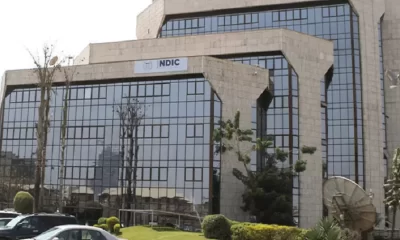By Ifeanyi Izeze
The Friday, December 18, 2015 ruling of a Dutch appellate court sitting in The Hague, Netherlands that the Dutch-based parent company of Nigeria’s Shell Petroleum Development Company Nigeria Limited (SPDC), Royal Dutch Shell, “can be liable for oil spills caused by facilities of her Nigerian subsidiary,” has continued to generate commentaries representing different shades of views.
Judge Hans van der Klooster said in the ruling that the “court has jurisdiction in the case brought against the Royal Dutch Shell and its subsidiary in Nigeria, ordering that access to documents that could shed more light on the cause of the leaks be provided.”
The implication of this is that claimants in Nigeria especially the Niger Delta can sue Shell in the Netherlands for the effects of oil spills emanating from assets of the transnational oil corporation.
It as well meant that an earlier decision by a lower Dutch court, which in 2013 ruled that Shell’s Dutch-based parent concern could not be held liable for spills at its Nigerian subsidiary, has been vacated.
The Nigerian subsidiary of the Anglo-Dutch oil giant, Shell Petroleum Development Company of Nigeria (SPDC) has a plethora of litigations against the company’s alleged environmental irresponsibility and outright recklessness across the Nigeria Delta region where it operates.
The story of foreign multinational oil operators in the Niger Delta has been that of outright impunity in spilling and covering devastating oil pollutions in the region. Shell is perceived to be the worst culprit by people of the region maybe because the company has the largest onshore and near-shore operations of all the operators in the country and they arrived well before almost all the other operators.
Shell’s case with the Ogoni people of Rivers state has been running since late 80s and culminated with the final expulsion of the company from Ogoni as the people alleged Shell was part of the conspiracy that led to the execution of Ken Saro Wiwa and other eight prominent Ogoni leaders who were at the forefront of the protest against the company pollution and devastation of parts of Ogoni where it operated.
Recall Shell was supposed to be the operator of the Oil Mining Lease (OML 11) covering the Ogoni area of Rivers state.
The company has 98 oil wells in about seven oilfields in Ogoniland and five flow stations in Bodo West, Bomu, Yorla, Korokoro and Ebubu before its expulsion from the area in 1993. Daily output from the area, according to the company’s statistics, was at 28, 000 barrels per day before the shut-in in 1993 after the killing of Ken Saro Wiwa et’al.
So it was not out of place that the first reaction to the Dutch Court ruling against Shell came from The Movement for the Survival of the Ogoni People (MOSOP) which through its President, Mr. Legborsi Saro Pyagbara, in Port Harcourt said, “This decision, which is not only a commendable step forward and relieving but also victory for environmental justice, would compel parent companies to take greater interest in the corporate conduct of their subsidiaries abroad especially balancing respect for human and environmental rights of their hosts and business interests.
“The decision has no doubt drowned initial setback and opened another opportunity for aggrieved families, individuals and communities in Ogoni, which environments have been destroyed by hydrocarbon pollution to seek redress in the Netherlands. We would thus urge the Goi community that is on appeal against Shell not to give up as the ecological war by SPDC against our communities would soon be redressed.”
“We however condemn the questionable attempts by Shell to frustrate the Ogoni people from further approaching courts in the United Kingdom (UK) for oil pollution impacts on the Ogoni environment.
It would be recalled that Shell had shortly after the Bodo (Ogoni)/Shell out of court settlement dubiously claimed to have relinquished its interests in Shell Nigeria with the quire intent of rendering new litigation(s) against her in the UK impossible as the UK courts would consequently decline jurisdiction.
Besides, as part of its strategy of frustrating the Niger Delta people particularly the Ogonis, Shell with its vast influence in the Nigerian government is believed to have been manipulating her way to ensure that environmental and related matters against the Anglo-Dutch concern in Nigerian courts including the appellate ones last more than necessary most times forever.
As alleged by MOSOP “it takes in fact an average of ten years for these litigations to be resolved by which time most of the plaintiffs have died.”
It is interesting that the case The Dutch Appeal decided on Friday, December 18, 2015 in The Hague was filed in the Dutch appellate court in 2014 and by December, 2015 the matter was decided.
There is a huge lesson for the Nigerian Judges in this. They should learn from their foreign colleagues in terms of timely resolution of cases as justice delayed may turn out to be justice denied.
• (IFEANYI IZEZE is a columnist with National Daily and lives in Abuja; email: [email protected]


 Politics5 days ago
Politics5 days ago
 News5 days ago
News5 days ago
 Latest7 days ago
Latest7 days ago
 Business1 week ago
Business1 week ago
 Crime7 days ago
Crime7 days ago
 Business6 days ago
Business6 days ago
 Business3 days ago
Business3 days ago
 Latest6 days ago
Latest6 days ago
